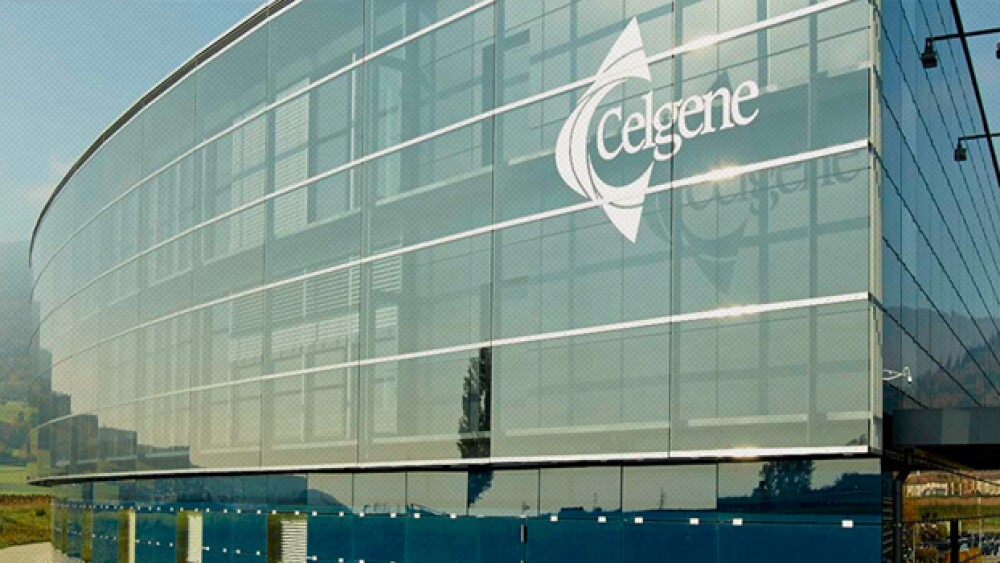Celgene Corporation announced that its Phase III IMpassion130 trial, sponsored by Roche, met its co-primary endpoint of progression-free survival (PFS).
Celgene Corporation announced that its Phase III IMpassion130 trial, sponsored by Roche, met its co-primary endpoint of progression-free survival (PFS).
The trial evaluated the combination of Tecentriq (atezolizumab) and Abraxane (paclitaxel protein-bound particles for injectable suspension) compared to Abraxane alone as a first-line treatment in first-line metastatic or unresectable locally advanced triple negative breast cancer (TNBC). The combination significantly cut the risk of the disease getting worse or death. Overall survival was also encouraging in the interim analysis in the PD-L1 positive population. Safety profiles for the combination were consistent with the individual therapies.
“The IMpassion130 results are extremely encouraging for patients with this highly aggressive form of breast cancer for which there are limited options,” said Jay Backstrom, Celgene’s chief medical officer, in a statement. “This is the third positive Phase III study to demonstrate a clinical benefit with Tecentriq plus Abraxane as part of a treatment regimen; the other studies evaluated this investigational combination in non-small cell lung cancer patients. These data demonstrate the potential role of Abraxane as a preferred chemotherapy partner for immunotherapy combinations.”
IMpassion130 is a Phase III multicenter, randomized, double-blind study. The goal is to evaluate the efficacy, safety and pharmacokinetics of Tecentriq and Abraxane compared with placebo in combination with Abraxane. The trial enrolled 902 people and was randomized on a one-to-one ratio. The co-primary endpoints were progression-free survival (PFS) via investigator assessment and overall survival (OS).
This is more good news after a string of missteps. Yesterday, Celgene Corporation and Acceleron Pharma indicated their Phase III clinical trial of luspatercept in beta-thalassemia hit its primary endpoint of erythroid response.
Luspatercept is a first-in-class erythroid maturation agent (EMA). The companies believe it regulates late-stage red blood cell maturation. The two companies have developed the drug jointly. Their collaboration began seven years ago when the drug was called ACE-536. At that time, Celgene paid Acceleron $25 million to work together, and milestone payments totaled about $217 million.
Celgene and Acceleron also announced that luspatercept met the primary and key secondary endpoints in the MEDALIST clinical trial. MEDALIST looked at the efficacy and safety of the drug compared to placebo in patients with IPSS-R very low, low or intermediate risk myelodysplastic syndromes (MDS) with chronic anemia and refractory to, intolerant of, or ineligible for treatment with an erythropoietin-stimulating agent (ESA), ring sideroblast-positive and require frequent RBC transfusions.
The companies plan to present data at a future medical meeting his year as well as regulatory applications in the U.S. and Europe in the first half of 2019.
But these positive reports are in contrast to much of the news coming out of the company over the last year. In late 2017, it dropped a late-stage Crohn’s disease drug and two clinical trials associated with it. Much more troublesome in many ways, was when the U.S. Food and Drug Administration (FDA) issued a Refusal to File letter regarding its New Drug Application (NDA) for its multiple sclerosis drug ozanimod. For a company of Celgene’s size and experience, that was unexpected.
Celgene simultaneously took responsibility for the screw-up while pointing the finger at its California subsidiary, Receptos, saying that executives should have done a better job of integrating its operations after it bought it in 2015 for $7.2 billion. Nadim Ahmed, Celgene’s president of hematology and oncology, after saying it was Celgene’s responsibility, went on to say, “I think that 99 percent of folks at Celgene wouldn’t have submitted, but we had Receptos out on the West Coast and, for whatever reason, the decision was made to submit. We learned a lesson of humility and that when you do an acquisition it’s better to be more integrated rather than be completely away from the mothership.”





